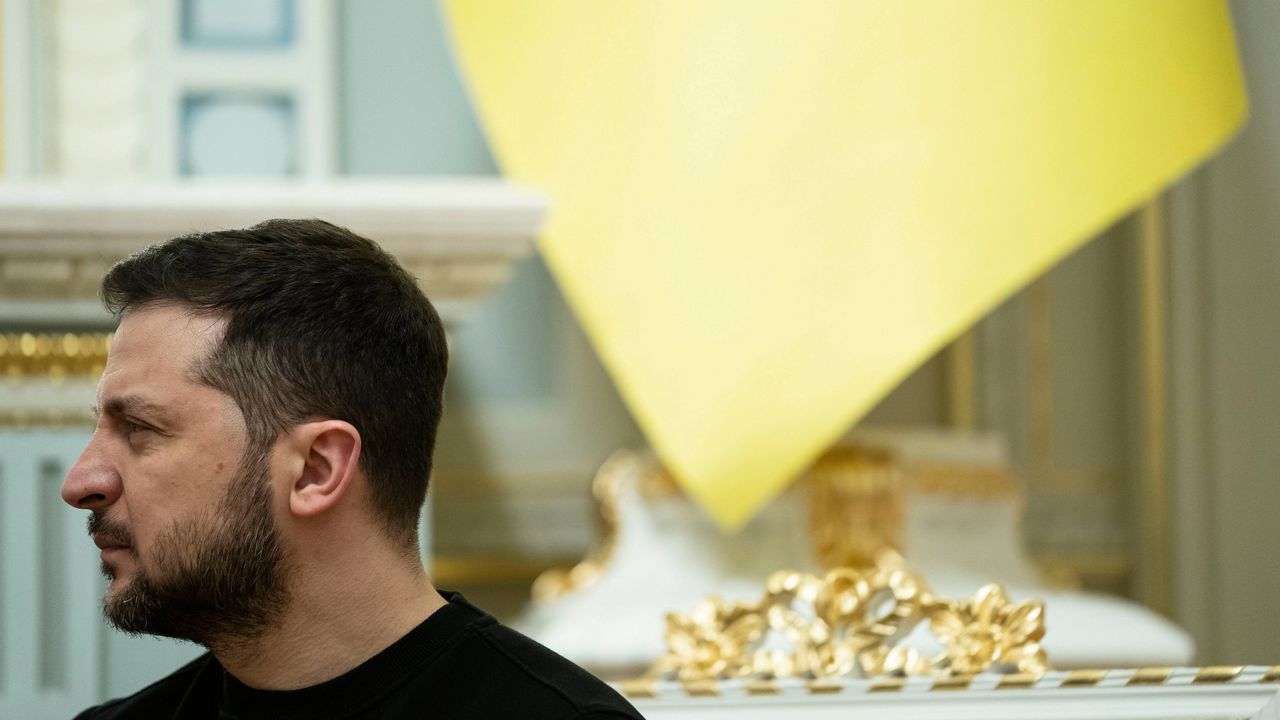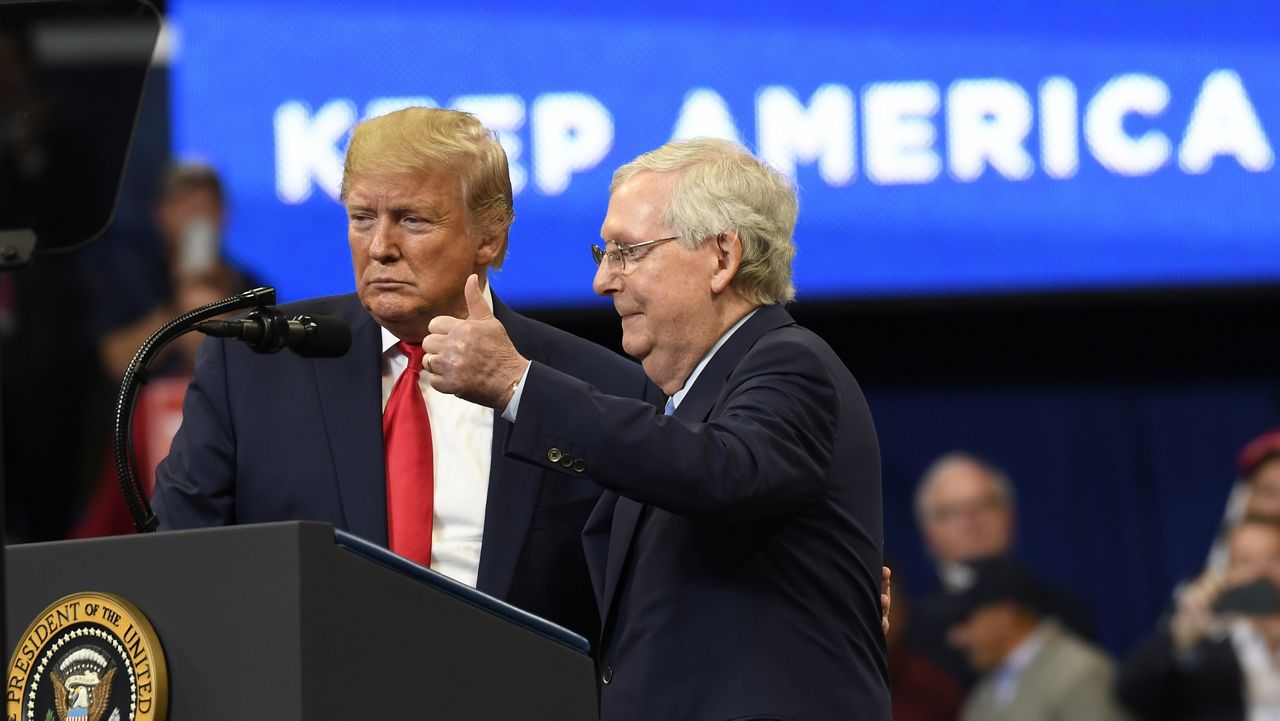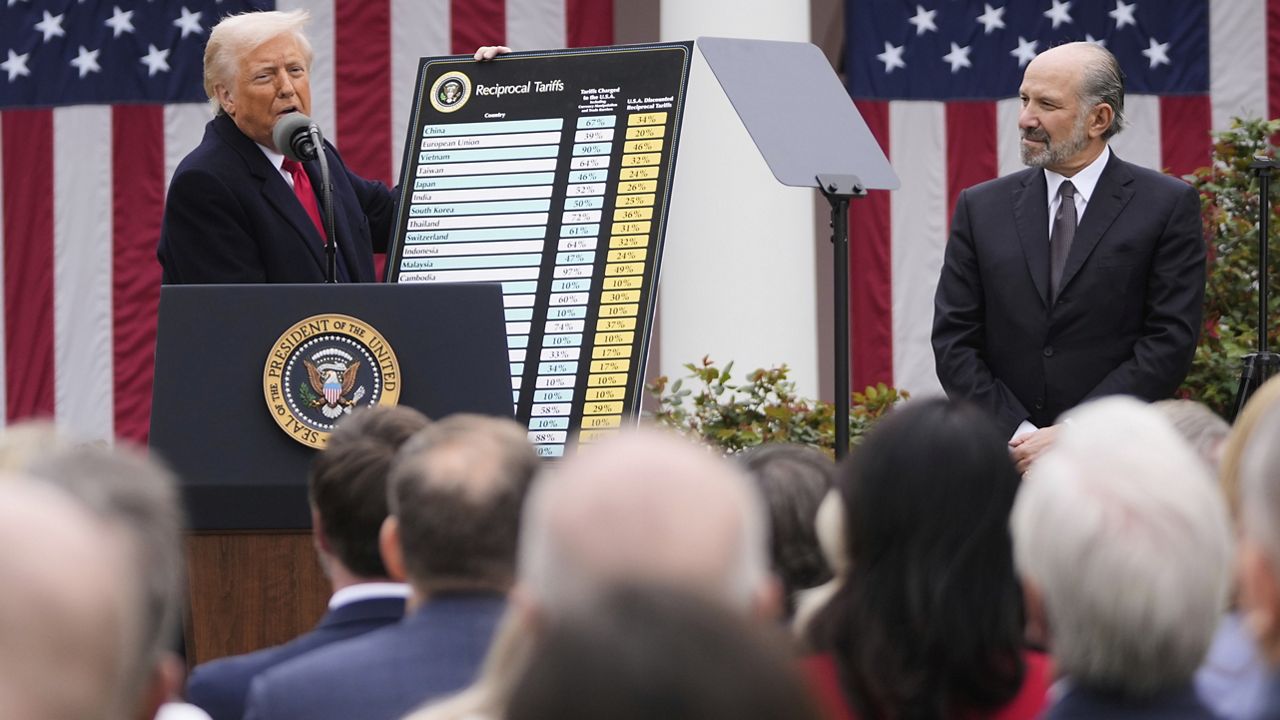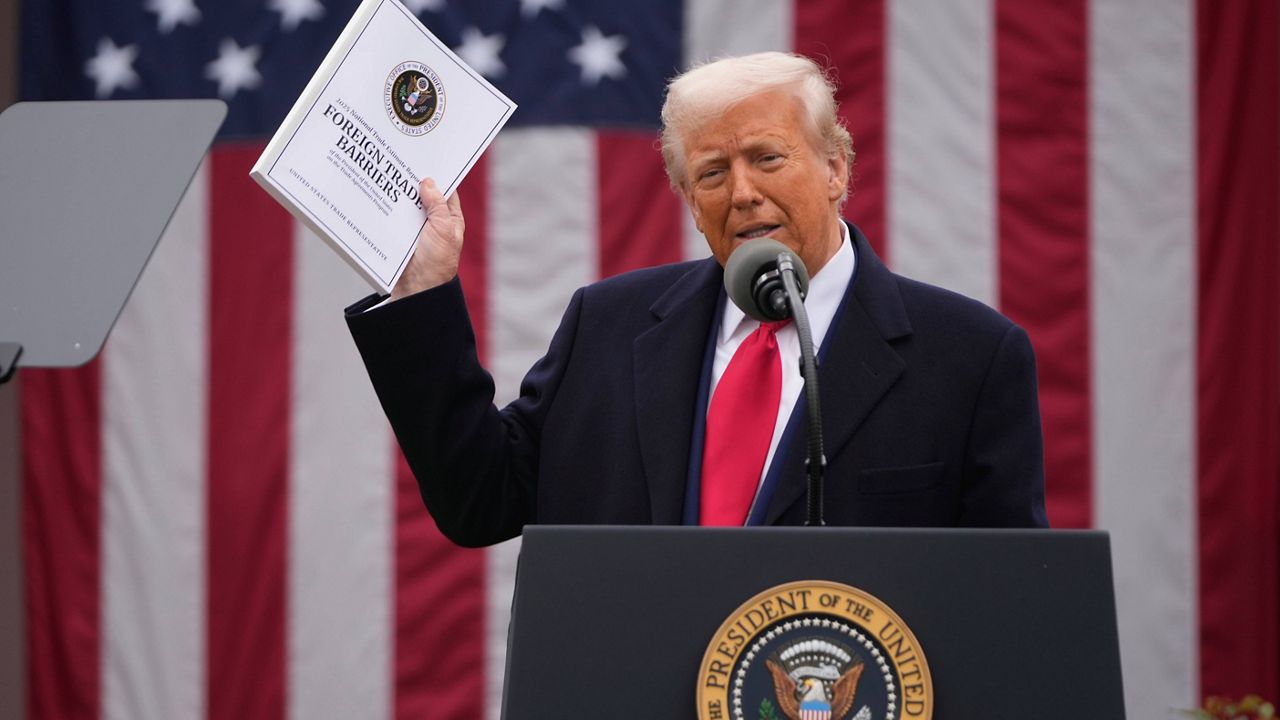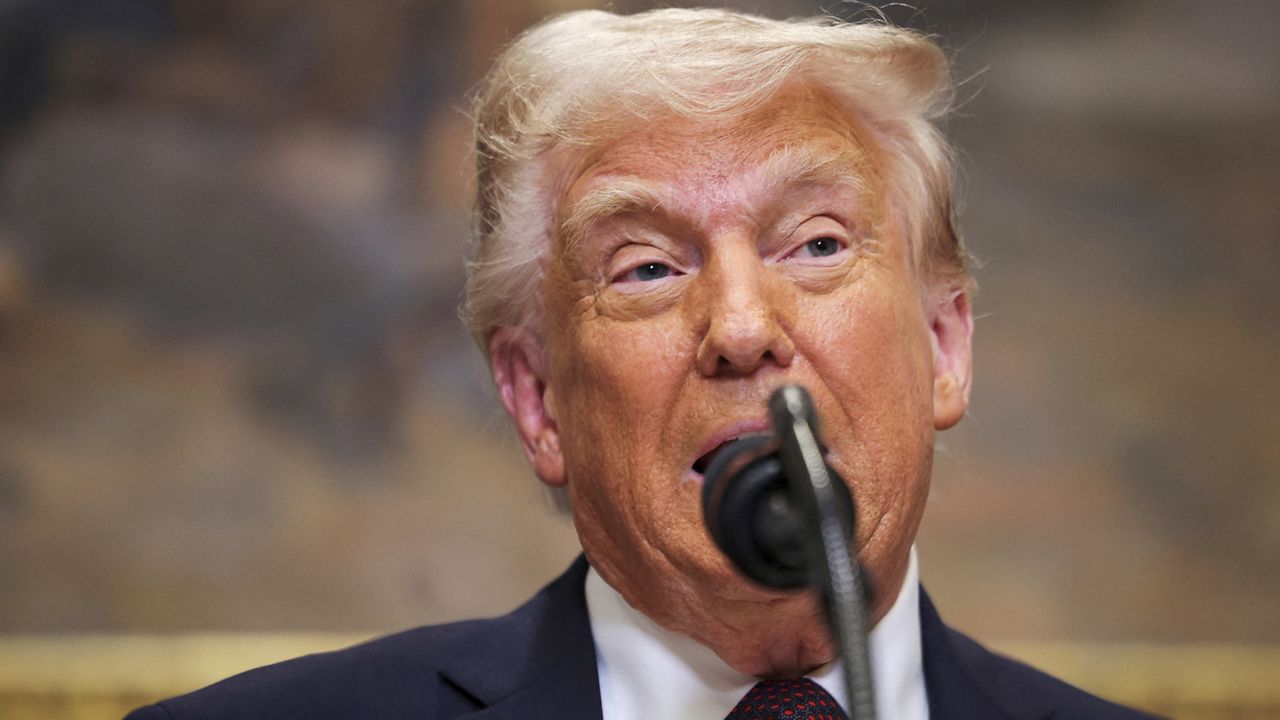A handful of congressional Republicans met Tuesday with Ukrainian President Volodymyr Zelenskyy in a signal of continued U.S. support even as hard-right members of the party vow to block future aid to the embattled country.
The newly appointed chairman of the House Foreign Affairs Committee led a small delegation to Kyiv to meet with Zelenskyy for the first time since the start of the war a year ago and since Republicans won the majority in the House of Representatives in November.
Chairman Mike McCaul and four other Republican lawmakers said they discussed at length what Ukraine's military needs to fight off Russian aggression. Zelenskyy provided them with a list of weapons, including longer-range artillery and air-to-surface missile systems.
The meeting came one day after President Joe Biden made an unannounced trip to Kyiv to reaffirm U.S. support for Ukraine as the war heads into its second year.
Biden has been trying to keep the allies unified in their support for Ukraine as the war is expected to intensify with spring offensives. The biggest hurdle facing the president is House Republicans. McCaul's visit Tuesday is the latest in a series of efforts by the Texas Republican to make the case to his party for why the U.S. should continue spending billions of dollars on the war effort.
“We have seen time and again the majority of Republicans and Democrats support our assistance to Ukraine. But the Biden administration needs to layout their long-term strategy,” McCaul said in a statement. “There are some Members who would be more supportive if they saw a long-term strategy that was based on a Ukrainian victory rather than sending just enough support to prolong the war but not win it.”
A spokesperson for McCaul noted the delegation has been focused on oversight and ensuring there are guardrails in place for any future aid to Ukraine.
A far-right faction of the Republican Party has been expressing its opposition to continued U.S. support to Ukraine since last spring. That campaign intensified this month when a group of 11 House Republicans led by Rep. Matt Gaetz of Florida put forward a “Ukraine Fatigue” resolution. It stated that the U.S. “must end its military and financial aid to Ukraine” and urged the combatants to “reach a peace agreement.”
“America is in a state of managed decline, and it will exacerbate if we continue to hemorrhage taxpayer dollars toward a foreign war,” Gaetz said.
Thus far, the U.S. has provided four rounds of aid to Ukraine in response to Russia’s invasion, totaling about $113 billion, with some of the money going toward replenishment of U.S. military equipment that was sent to the front lines.
Congress approved the latest round of aid in December. While the package was designed to last through the end of the fiscal year in September, much depends upon events on the ground.
For his part, Zelenskyy has been working with both Democrats and Republicans to ensure their support once the country runs out of aid, likely to happen in late summer. “It’s really very important. We’re thankful for the U.S., for its people,” Zelenskyy said in an video posted by his office after the meeting.
In comments later on social media, Zelenskyy added, “Thank you, American congressmen, for supporting Ukraine and understanding the importance of stepping up aid to help us achieve victory over the aggressor.”




